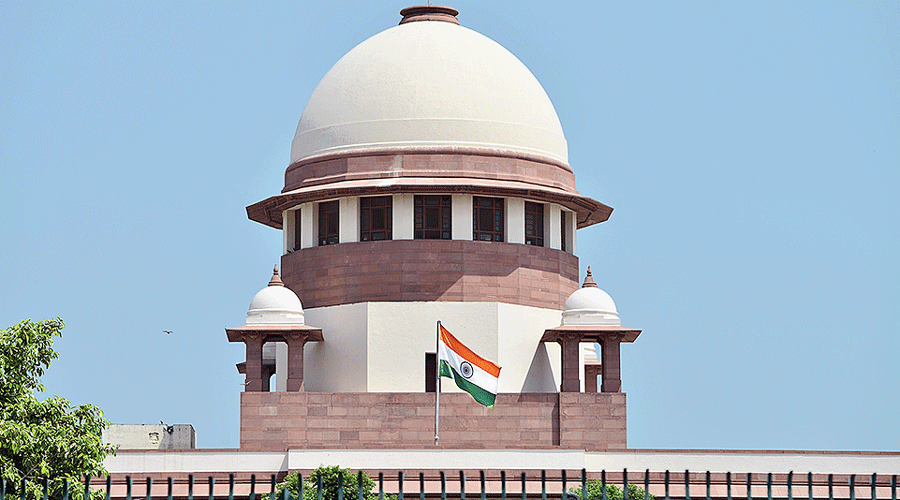The Supreme Court on Monday issued notice to the Karnataka government on a batch of petitions challenging a Karnataka High Court judgment that had earlier upheld the ban on hijab or any other form of headscarves as the identity of one’s religion in educational institutions.
A bench of Justice Hemant Gupta and Sudhanshu Dhulia, however, declined to grant the two-week time adjournment sought by some of the petitioners as the court said “we will not allow forum shopping”.
The term “forum shopping” refers to litigants attempting to list the matter before a bench convenient to them.
“You asked for an early hearing, we cannot allow forum shopping, you argue before us…. We will take up on Monday (September 5) for arguments,” Justice Hemant Gupta, heading the bench, told the counsel who sought a two-week adjournment.
The bench insisted it would hear the matter on September 5.
“You (petitioners) have asked for this hearing so many times (through special mentioning before the then CJI N.V. Ramana),” the bench pointed. The counsel pleaded that various individual petitioners who had filed the appeal against the high court verdict were scattered in different parts of the state, hence the matter be listed after two weeks.
Solicitor general Tushar Mehta interjected to say that some of the petitioners have mentioned the plea for urgent listing on six occasions, but were now seeking an adjournment. Mehta, appearing for the state, said the government was willing to argue the matter any time as the issue involved a “pure question of law”.
Justice Gupta said if there is a will, the petitioners can come to Delhi in two-and-a-half hours (by flight) as the two-week adjournment cannot be entertained.
The batch of appeals and applications had challenged the March 15 judgment of Karnataka High Court which had ruled that wearing of a headscarf is not an essential religious practice in Islam and is a reasonable restriction on the freedom of speech and expression.
“Prescription of school dress code to the exclusion of hijab, bhagwa, or any other apparel symbolic of religion can be a step forward in the direction of emancipation and more particularly, to the access to education.
“It hardly needs to be stated that this does not rob of the autonomy of women or their right to education in as much as they can wear any apparel of their choice outside the classroom,” the high court had said while upholding the state government’s order dated February 5, imposing a ban on a headscarf or other apparel symbolic of one’s religion.
One of the special leave petitioners has argued “that the… high court has erred in creating a dichotomy of freedom of religion and freedom of conscience wherein the Court has inferred that those who follow a religion cannot have the right to conscience”.
It was submitted that the high court had failed to note that there does not exist any provision in the law which prescribes any punishment for students for not wearing uniforms.
According to the petitioner, the impugned judgment has failed to note that the right to wear a hijab comes under the ambit of the right to privacy under Article 21 of the Constitution of India as the freedom of conscience forms a part of the right to privacy.










